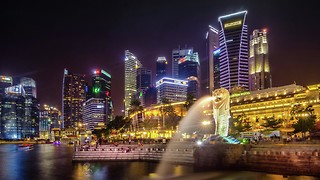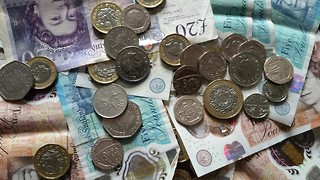Big trouble in little Hong Kong
Following protests over the New Year Freddie Green examines the growing tensions between China and Hong Kong
“Patriotic Education Classes” has a strangely threatening ring to it, the kind only a communist state could come up with. In fact, the name so clearly masks an attempt by the Chinese Government to impose their own version of history on Hong Kong, that calling them “Brainwashing Classes” might have resulted in a warmer reception in the polls.
The proposition sparked furor and widespread protests in the former British colony back in the summer of 2012. Anti-Chinese slogans were passionately chanted and dusty old British colonial flags brought out of chests and waved. The proposition was shot down in the polls and Hong Kong retained its curious concoction of Sino-British independence.
Who could have predicted such an imposition by the Chinese on Hong Kongese affairs? The answer: everyone.

When Hong Kong was handed back to the Mainland in 1997, China-watchers quite reasonably expected that a slow process of absorption would take place. Hong Kong businesses would gradually blend with their mainland counterparts, and the citizens would, uncomplainingly, accept this state of affairs. Things haven’t gone quite as planned.
The plot thickened again over New Year. More angry Hong Kongers paraded the streets, this time against the supposedly corrupt Chief Executive CY Leung. The protest began amid claims that he had lied about illegal building structures at his home. Enlarging homes without permission is a sensitive issue in a city where living space is a dizzyingly expensive commodity. However, things soon escalated, making the MP expenses scandal look like a simple misunderstanding.
Accusations that Leung is simply a megaphone, a puppet for policy-makers in Beijing have, once again, given the protests a distinctly anti-Chinese feel. An erroneous DIY job, Hong Kongers can cope with. Pandering to Beijing, they cannot.
And what are we to make of protestors zealously waving colonial flags? Flourishing though Hong Kong was under British rule, this is not the manifestation of a desire to return to those days. It’s a symbol, a political slap in the face from a people growing increasingly frustrated with Chinese hegemony. Like one protester put it, “We have the same blood but not the same values. That’s why we aren’t Chinese. Even though this is a colonial flag, it represents freedom.”
Hong Kong has developed an independent-mindedness that neither Britain nor China could have predicted, and it’s raised the ire of an ageing, conservative cabinet in Beijing, while surprising Western journalists and politicians alike. As another protestor concluded, “We aren’t British and we aren’t Chinese. We are Hong Kongese and we want to stay that way.”
These are unforeseen circumstances, and things are only going to get more complicated. Barring radical changes authored by Beijing, by 2017, the Chief Executive (effectively Prime Minister) will be voted for by Honk Kong citizens. If the current nationalistic, pro-democratic trends continue, Hong Kongers are only going to seek greater autonomy, and could have a man in government to sort that out for them.
Western media does, it must be said, have an uncanny ability to oversimplify pro-democracy movements in China. To an extent, I’ll be guilty of that by the time I finish writing this. Furthermore, following the anti-Chinese suffrage movements, pro-Chinese groups assembled in a display of loyalty to the Mainland. It isn’t as black and white as it may seem.
That said, this is a baptism of fire for a fledgling Beijing government, elected only a few months back. Allowing Hong Kong popular elections (rather than the current system where the CCP picks a leader), may placate popular sentiment but will afford nationalists greater power. Taking action to remove this clause will avoid a loss of power, but aggravate an already disgruntled public.
Politics aside, there is not a great deal to link Hong Kongers to China. “One Country, Two Systems” was the slogan paraded by the Communist Party when it took control of Hong Kong in 1997. Yet 2/3of citizens don’t feel at all Chinese. The region has it’s own press freedoms, flourishing movie culture, and an administrative system identical to the British imperial economic system. The boom of a British cannon, fired every day at noon, reminds Hong Kongers of that.
Such antique vestiges of colonialism and such tenuous links to its mainland big brother have culminated in an identity crisis for the ex-colony. British rule is a spectre of the past, while Chinese rule has little influence. These protests are about more than brainwashing classes and political scandal. They reflect the frustration of a people who have been ruled by two different nations in the last 15 years, yet feel no true connection to either.
Hong Kong is testing the murky waters of Beijing. They are seeing whether the new government will afford them the greater autonomy they so desire. Xi Jinping (the new leader of China), while unlikely to let such an economic stronghold slip from his grasp, has also shown signs of reformism, a willingness to toy with democracy.
Hong Kong may yet hope to forge its own future. That’s unless they don’t get brainwashed along the way.
 News / Council rejects Wolfson’s planned expansion28 August 2025
News / Council rejects Wolfson’s planned expansion28 August 2025 News / Tompkins Table 2025: Trinity widens gap on Christ’s19 August 2025
News / Tompkins Table 2025: Trinity widens gap on Christ’s19 August 2025 Interviews / GK Barry’s journey from Revs to Reality TV31 August 2025
Interviews / GK Barry’s journey from Revs to Reality TV31 August 2025 Comment / My problem with the year abroad29 August 2025
Comment / My problem with the year abroad29 August 2025 News / New UL collection seeks to ‘expose’ British family’s link to slavery30 August 2025
News / New UL collection seeks to ‘expose’ British family’s link to slavery30 August 2025









